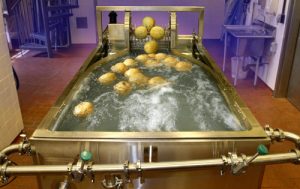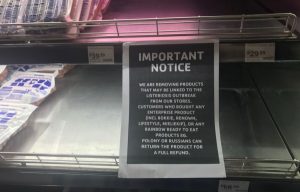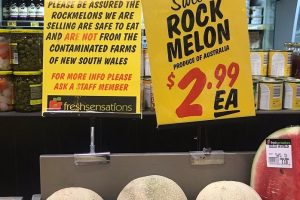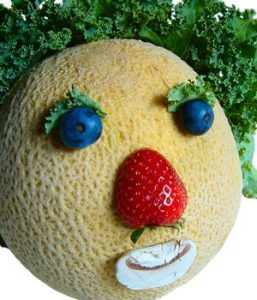As listeria continues it death stroll in South Africa, Australia, and before that, Canada, the European Food Safety Authority reports an outbreak of invasive Listeria monocytogenes (L. monocytogenes) infections defined by whole-genome sequencing (WGS) and probably linked to frozen corn has been ongoing in five EU Member States (Austria, Denmark, Finland, Sweden and the United Kingdom) since 2015.
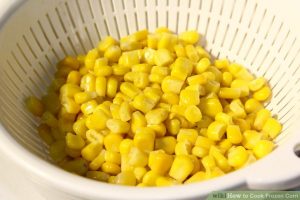 As of 8 March 2018, 32 cases have been reported and six patients have died due to or with the infection. WGS analysis of six non-human L. monocytogenes isolates detected from 2016 to January 2018 in Austria, Finland, France and Sweden found these isolates closely related to the multi-country cluster of L. monocytogenes serogroup IVb, multi-locus sequence type 6 (ST6).
As of 8 March 2018, 32 cases have been reported and six patients have died due to or with the infection. WGS analysis of six non-human L. monocytogenes isolates detected from 2016 to January 2018 in Austria, Finland, France and Sweden found these isolates closely related to the multi-country cluster of L. monocytogenes serogroup IVb, multi-locus sequence type 6 (ST6).
The non-human isolates were detected in two different samples from mixed frozen vegetables; three samples from frozen corn, and one sample from a surface where various vegetables could have been processed. The only common food item in all non-human samples was corn. The WGS analysis provides a strong microbiological link between the human and the non-human isolates and is suggestive of a potential contaminated food source related to frozen corn persisting in the food chain at least since 2016.
Traceability information for the three frozen corn samples pointed to frozen corn products packed in Poland and processed/produced in Hungary. Two additional non-human strains isolated in Austria from frozen vegetable mixes with corn as an ingredient were traced back to the same common origin in Hungary. Further investigations are needed to verify the point of contamination in the food chain.
Consumption of frozen corn has been confirmed by two patients, one in Finland and one in Sweden. In addition, a Danish patient reported consumption of mixed frozen vegetables, which could have included corn. The Finnish patient confirmed consumption of frozen corn of one suspected brand, supporting an epidemiological link between the outbreak cases and frozen corn. However, no traceability and microbiological information was available for the corn consumed by the Finnish and the Swedish patients.
Food business operators in Estonia, Finland, Poland and Sweden have withdrawn and recalled the implicated frozen corn products from the market. These measures are likely to significantly reduce the risk of human infections in these countries. However, new invasive listeriosis cases may be identified due to the long incubation period (1–70 days), long shelf-lives of frozen corn products and potential consumption of frozen corn bought by the customers before the recalls and eaten without being properly cooked. Furthermore, until the root source of contamination is established and control measures implemented, new cases may occur.
 So where does frozen corn – one of my personal favorites – come from?
So where does frozen corn – one of my personal favorites – come from?
In 2001, long before barfblog.com or youtube, Chapman and I toured some farms and vegetable processing plants in Ontario (that’s in Canada) in 2001.
We more both amazed at the efforts involved in taking corn from the field to a frozen packaged state.
At the time we were wandering around combines in fields – something comfortable for me – and a dude said, we’re gonna sell 90-minute, non-GMO frozen corn in the EU./em>
That’s 90 minutes from harvest to the frozen bag.
I won’t go into the BS marketing aspects of this, but that they were able to pull it off was something to watch.
Intricate timing with the harvest, metal detectors, individually quick frozen (IQF) kernels and into a box to be bagger later.
I asked what the biggest microbial risks were, and the manager said, Listeria.
So they ran a test-and-hold procedure.
That’s how it’s done.
No idea what’s happening with the EU suppliers.



